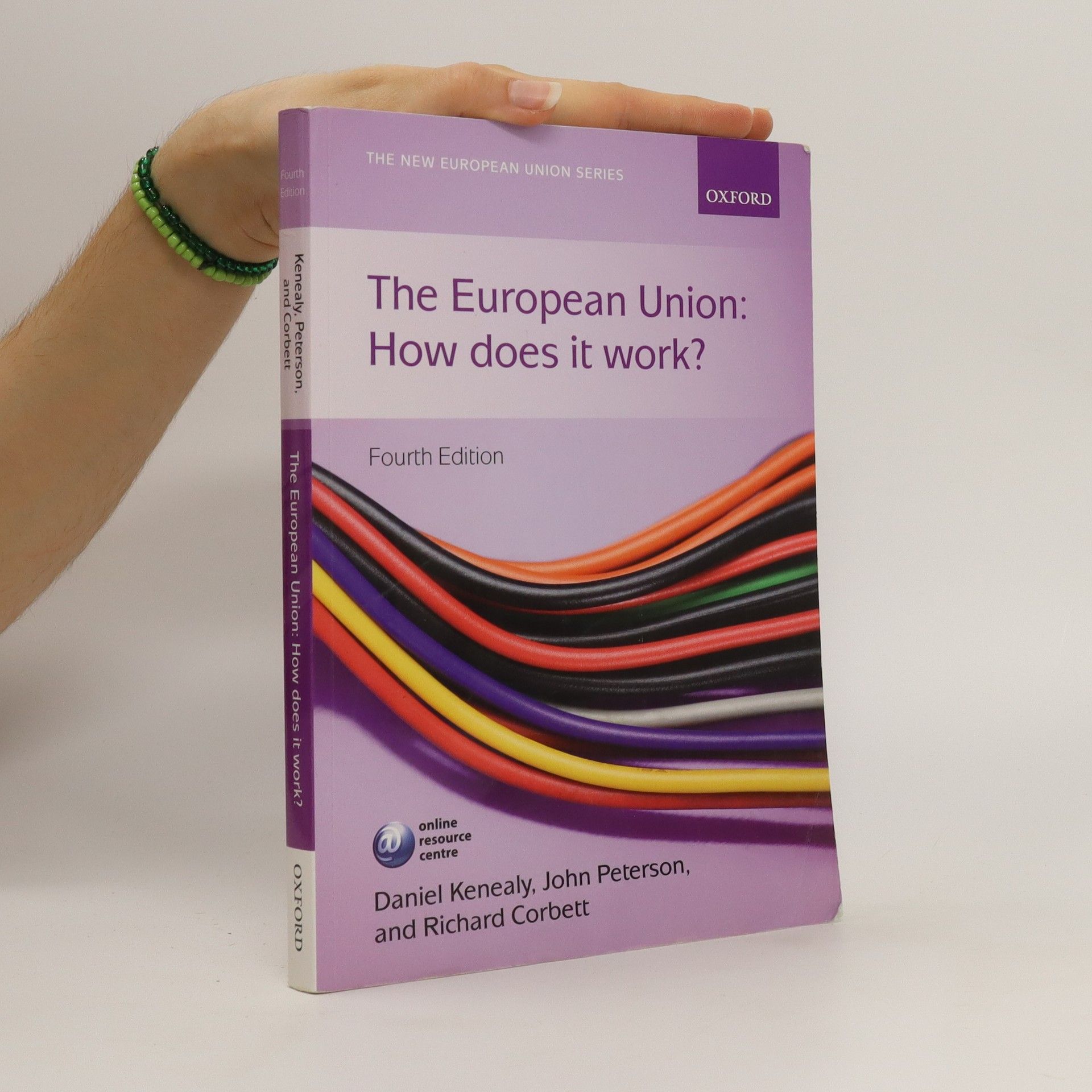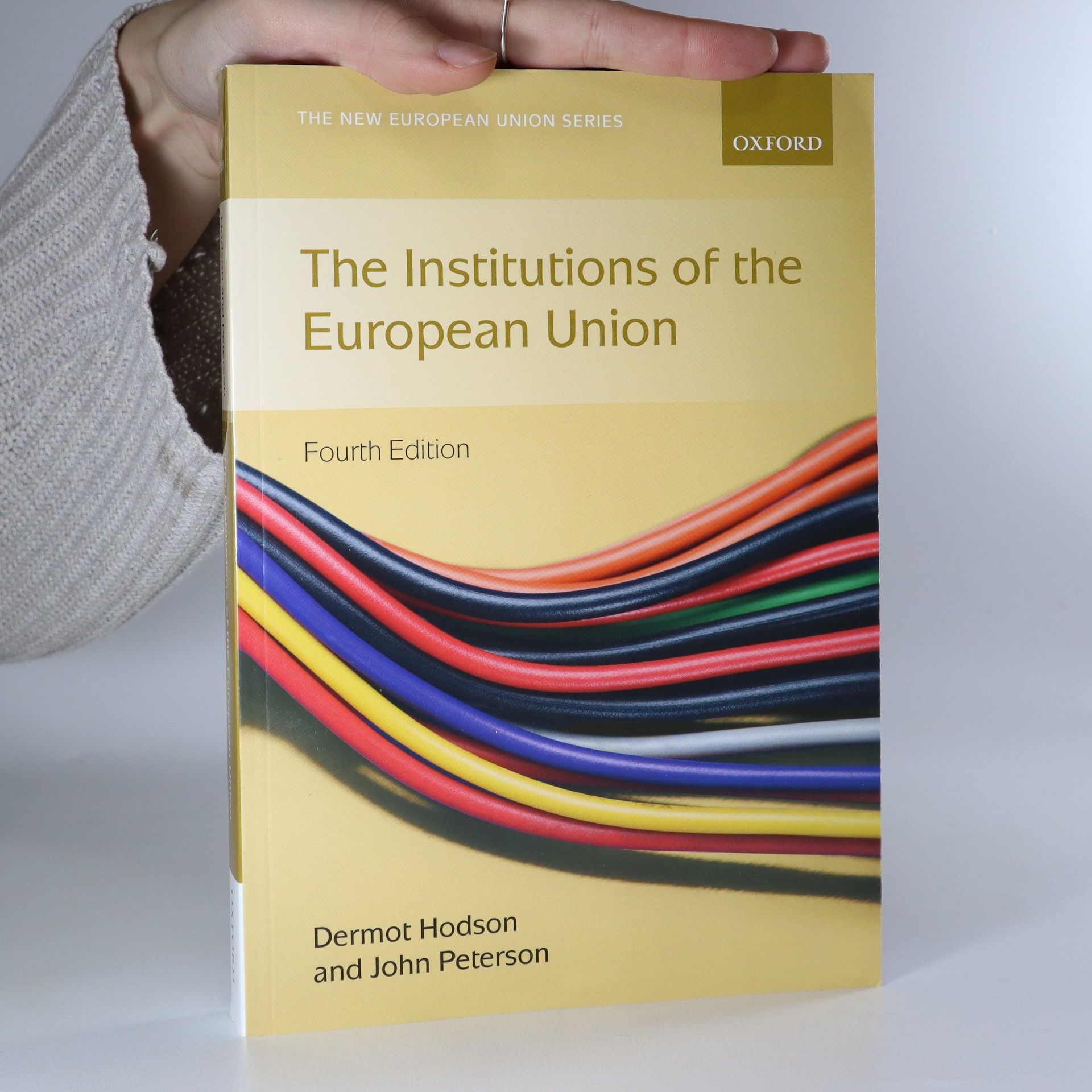"Church History Time-line" chart on folded leaf in v. 1.
John Peterson Livres






The institutions of the European Union
- 498pages
- 18 heures de lecture
This book is the key text for anyone wishing to understand the functions, powers, and composition of the EU's institutions. From the Council of Ministers to the European Central Bank, all of the most important organizations are analysed and explained by international experts, providing students with everything they need to know.
The European Union
- 312pages
- 11 heures de lecture
'The European Union: How does it work?' is the perfect introduction to the EU's structure and operations for those coming to the subject for the first time. An expert team of scholars and practitioners cut through the complexity to explain how the EU works in practice, and equip students with the knowledge and skills they need to master the subject. The fourth edition of this successful textbook reflects the ongoing changes in the EU in the aftermath of the Eurozone crises, and the global context in which the EU exists. It also features expanded coverage of theories of European integration and policy making, and considers the hugely topical debate about the UK's future in the EU. Students' understanding of the main actors, policies, and developments in the EU is aided by the inclusion of helpful learning features throughout the text. 'How it really works' boxes challenge students to contrast the theory with how the EU actuallly works in practice, while 'Compared to what?' features encourage them to think broadly and critically about the reality of politics in the EU.--
The Distance Cure
- 328pages
- 12 heures de lecture
"A history of therapy at a distance, from Freud's letters to FaceTime and Skype"-- Provided by publisher
The European Union : how does it work?
- 280pages
- 10 heures de lecture
This short introductory text de-mystifies the European Union's structures and operation. Blending scholarly expertise and practitioners' experience, the authors introduce and analyse the EU's key actors, processes and developments. The book's overall aim is to provide an accessible, livelyintroduction to how the EU works and why it matters.
The Littles Go Exploring
- 96pages
- 4 heures de lecture
The Littles venture into the land beyond the Dark Woods, an area unknown to small people. Reissue to celebrate the Littles' 25th anniversary.Years ago, Grandpa Little set off to explore and was never seen or heard from again. But now, Lucy and Tom think they can figure out the path he last took into the wilderness. The family pakcs up and heads upstream.
The Littles: to the rescue
- 95pages
- 4 heures de lecture
The Littles is a timeless favorite that's been enjoyed for decades. Ready to grab the attention of a new generation, fresh cover art brings an updated look to this classic series.Meet the Littles, a family like any other but with a few tiny differences! They live in the walls of the Bigg family house where they get everything they need. In return they make sure the Bigg house is always in good repair.A baby is on the way! Despite an awful storm, Cousin Dinky and Aunt Lily set out in the glider in order to help Mrs. Little. But when the glider arrives, Dinky realizes that something is missing. Aunt Lily!
Twenty-five years after their creation, the Littles continue to delight young readers with a reissue of their second story, featuring brand-new cover art. Reprint.
The Littles Have a Wedding
- 96pages
- 4 heures de lecture
Cousin Dinky, an adventurous pilot, brings his future bride home to meet the Littles, a family of tiny, tailed people who live inside the walls of the Biggs' house. Reissue.



